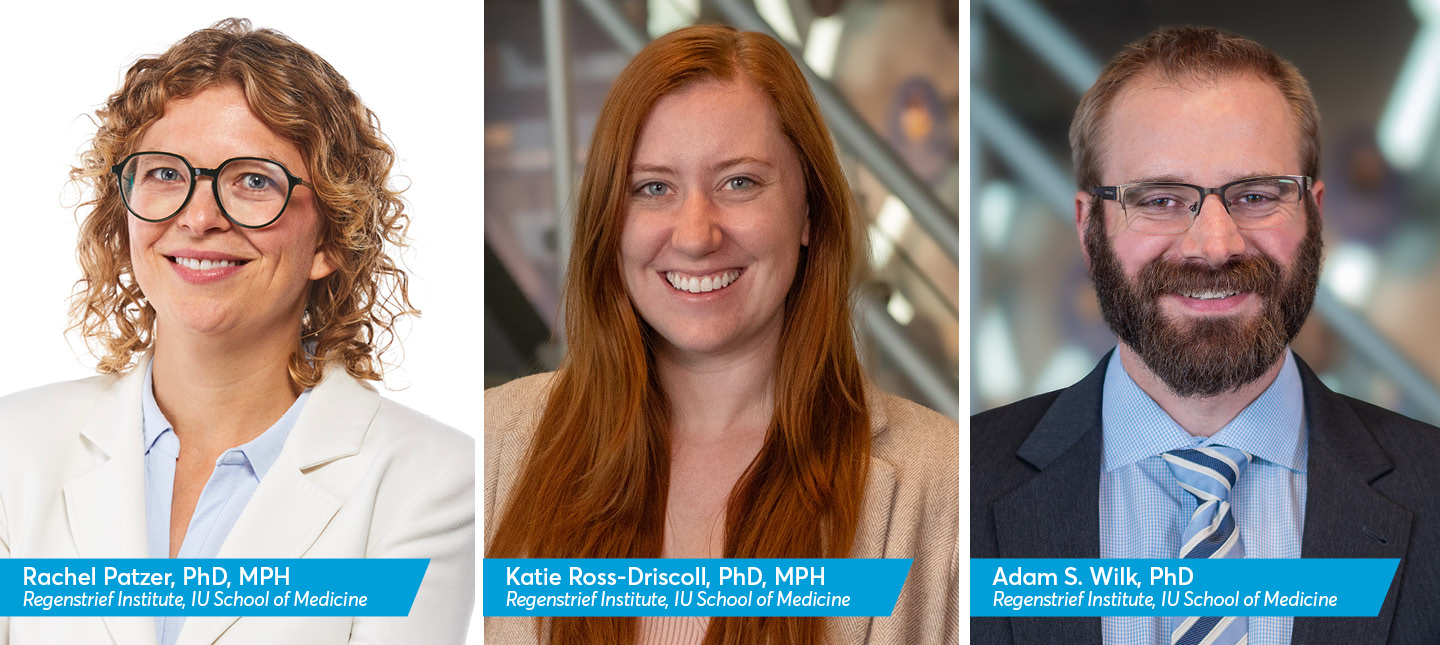Regenstrief Institute research cited in new federal rule
A new final rule issued by the Centers for Medicare and Medicaid Services and the U.S. Department of Health and Human Services for a mandatory alternative payment model called the Increasing Organ Transplant Access (IOTA) Model aims to improve the number of life-saving kidney transplants for patients whose kidneys have failed. The new rule will test whether performance-based upside or downside risk payments among a selected subset of kidney transplant hospitals increase access to kidney transplants for patients with end-stage kidney disease while maintaining or improving the quality of care and reducing Medicare costs.
Kidney failure affects more than 800,000 individuals in the U.S., and the coverage of care for patients with a diagnosis of kidney failure is covered under the U.S. Medicare End Stage Renal Disease program. Patients can be treated with either kidney transplantation or dialysis, and transplantation is the optimal treatment option for patients and more cost-effective than the alternative treatment option: dialysis. However, there are nearly 100,000 individuals on the kidney transplant waiting list, and about 3,000 new patients are added each month, but only about 25,000 kidney transplants are performed each year. More than 30 percent of deceased donor organs procured for transplantation are not used each year, and an average of 13 patients die per day while waiting for a transplant.
Studies conducted by Regenstrief Institute and Indiana University School of Medicine researchers Rachel Patzer, PhD, MPH; Katie Ross-Driscoll, PhD, MPH; and Adam Wilk, PhD; were repeatedly cited throughout the CMS Final Rule, issued by the Centers for Medicare and Medicaid Services on Nov. 26, 2024. The new model begins on July 1, 2025.
Dr. Patzer, who is a research scientist within the Center for Health Services Research as well as the President and CEO of the Regenstrief Institute, currently leads a research study funded by the National Institute on Minority Health and Health Disparities, part of the National Institutes of Health, focused on federal payment models for kidney disease, and is a leading expert in the topic of barriers and facilitators to improving access to kidney transplantation. She is also a member of the American Society of Nephrology Policy and Advocacy Committee, which aims to advance policies through federal legislation and regulations to promote kidney health, improve access to transplantation, and eliminate inequities in kidney disease and transplantation.
“Historically, kidney transplant centers have been incentivized to focus on improving survival and outcomes of patients who are transplanted but have ignored the population of patients who have not yet successfully been transplanted,” said Dr. Patzer. “The IOTA model seeks to change this by incentivizing transplant centers to focus on improving not only outcomes of transplant, but also access to transplant for patients with kidney failure.”
Rachel Patzer, PhD, MPH
In addition to her roles as president and CEO and research scientist with Regenstrief Institute, Rachel Patzer, PhD, MPH, serves as the Leonard Betley Professor of Surgery at Indiana University School of Medicine and an adjunct professor at IU Richard M. Fairbanks School of Public Health. Dr. Patzer is an epidemiologist and health services researcher with a strong focus on healthcare access, quality of healthcare delivery and outcomes. Her research centers on such key areas as disparities, social determinants of health, community-based participatory research, predictive analytics, healthcare quality and health policy evaluations. She has been instrumental in reshaping the national organ transplantation paradigm, advocating for a population health approach to inform quality measures, policies and equitable solutions.
Katie Ross-Driscoll, PhD, MPH
In addition to her role as a research scientist with Regenstrief Institute, Katie Ross-Driscoll, PhD, MPH, is an assistant professor of surgery at Indiana University School of Medicine. She is a health services researcher and epidemiologist focused on social epidemiology and its application to health disparities in patients with end-stage liver disease. Her work delves into the relationship between access to care, care quality and the resulting racial, socioeconomic and geographic disparities in outcomes for End-stage liver disease patients.
Adam S. Wilk, PhD
In addition to his role as a research scientist with the William M. Tierney Center for Health Services Research at Regenstrief Institute, Adam S. Wilk, PhD, is an associate professor at the Indiana University School of Medicine and a health economist working to improve access to high-quality and high-value healthcare services for populations with chronic diseases. His research focuses on state and national insurance programs (e.g., Medicaid and Medicare,) and the impact of these programs’ policies on access to needed care for individuals with low-income and disabilities, including improving access to kidney transplantation and home dialysis among adults with end-stage kidney disease.











